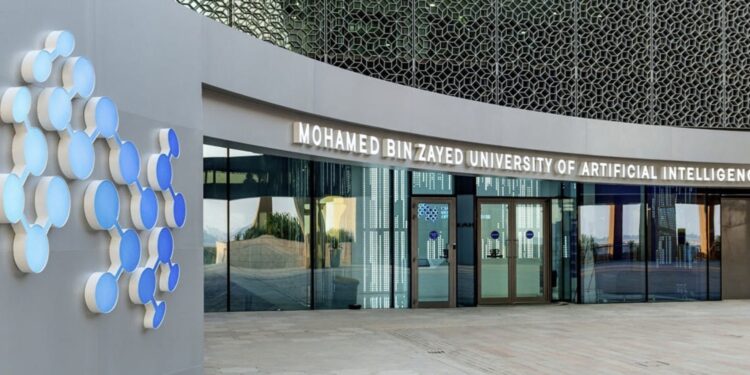Developed by the Mohamed bin Zayed University of Artificial Intelligence (MBZUAI), the world’s first graduate-level, research-based artificial intelligence (AI) university, the new Silicon Valley lab will introduce an effective collaboration network to enhance technology innovation.
This multi-pronged expansion is a major step in MBZUAI’s strategy to promote the internationalization of the field of AI and spur innovation in the field that continues to evolve at breakneck speed.
The new MBZUAI-Valley Lab will play a critical role as a hub for advanced research in major areas of artificial intelligence, such as machine learning, computer vision, natural language processing, and robotics, among others, as well as the exploration of new sectors, products and commercial application potentials.
Ranging from access to the most enriched academic resources to the ability to attract the most talented students as well as the opportunity to closely collaborate with top academic research institutions and technology companies in the region.
Professor Eric Xing, President, MBZUAI, explained the significance of this venture saying, “Our footprint in Silicon Valley will play a key role in increasing our global presence in this vibrant AI landscape.
We’re opening up channels for the exchange of knowledge with top academic institutions and tapping into a rich source of talent that knows how to scale research up into real-world applications.”
During the launch event, organized to share the university’s complete roadmap and strategy, attending guests and representatives from AI companies and research institutions around the world heard from top experts in AI and witnessed the region’s commitment to push the boundaries of what can be achieved in the field.
“The display of ‘PAN,’ MBZUAI’s path-breaking AI world model, was a highlight of the event.
PAN is able to create infinitely varied and physically real simulations, which could be used by researchers to evaluate and improve the performance of AI agents in the complex virtual worlds it creates, for example, autonomous cars maneuvering around busy streets or robots navigating an ever-changing indoor environment.
In addition, MBZUAI showcased advances in its large language models (LLMs). K2, a giant model with 65 billion parameters, features an outstanding reasoning ability with impressively high computational efficiency.
Jais, the Arabic-language model for MBZUAI, continues to be a major player in multilingual AI, and its continued development will be aiming to grow its linguistic support and cultural understanding.
It is believed that the stake in Silicon Valley will be instrumental in the UAE’s ICT initiative, particularly in driving its AI ecosystem. Through making talent, ideas, and research transferable, MBZUAI seeks to attract international talent to the region, fuel collaborative projects, and expose student and faculty access to the most recent advances in industry.
The MBZUAI-Valley Lab will act as a much needed bridge between AI breakthroughs in the Middle East and the energy and dynamism of Silicon Valley, and in turn, the development of AI for global benefit.










![Online Scam Cases Continue to Rise Despite Crackdowns on Foreign Fraud Networks [Myanmar] Online Scam Cases Continue to Rise Despite Crackdowns on Foreign Fraud Networks [Myanmar]](https://sumtrix.com/wp-content/uploads/2025/06/30-12-120x86.jpg)




